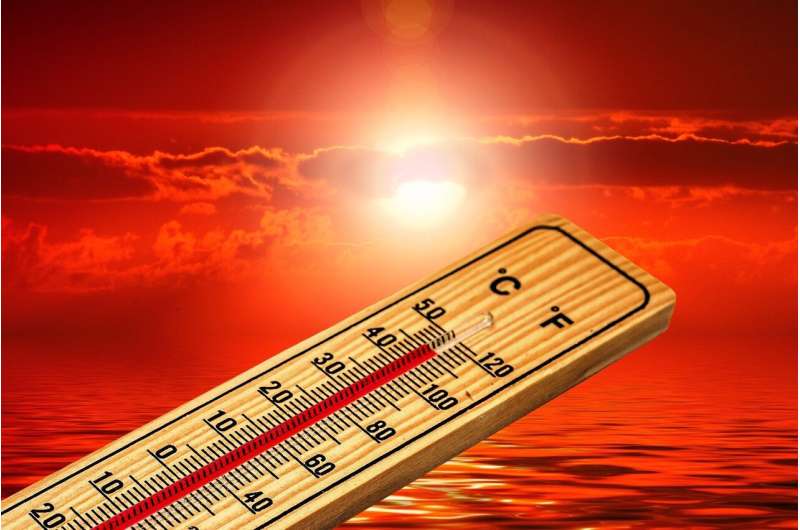Heat waves and droughts cause billions of dollars in global economic losses, research finds

Severe weather costs the global economy billions of dollars a year, highlighting the costs of climate change and the value of mitigating extreme weather, according to a new analysis of weather and economic data.
"This research gives guidance to policymakers to consider what kind of extreme events we should adapt to," said Berkay Akyapi, Ph.D., co-author of the new study and a professor of business at the University of Florida. "If we don't do anything to respond to these climate shocks, we are hurting the economy."
An increase in extreme heat and severe droughts lops off about 0.2% of a country's GDP. Climate change is also decreasing the number of days that have mild temperatures, which the economists found also hurts economic activity by a similar amount. Although a small percentage, it is a larger weather-driven effect than many economists had previously calculated and adds up to billions of dollars at risk across the global economy.
Akyapi, a professor in the UF Warrington College of Business, collaborated with Matthieu Bellon, Ph.D., at the European Stability Mechanism and Emanuel Massetti, Ph.D., at the International Monetary Fund to perform the analysis, which included billions of weather observations across hundreds of countries over a 40-year stretch. Their findings are forthcoming in the American Economic Journal: Macroeconomics.
Previous studies had primarily looked at average temperatures, which are increasing over time but were not correlated very strongly with economic growth. Average temperatures hide a lot of events that can hurt the economy.
"When you take the average temperature across time and space, the weather looks nicer than it actually is," Akyapi said. "But those average readings could hide that you have a heat wave in Florida and a cold snap in Michigan."
Akyapi and his collaborators instead plugged in hundreds of different weather measurements into a machine-learning algorithm to identify which factors correlated with economic growth or contraction.
Countries with agricultural economies fared worse than industrial economies in response to high temperatures—those over 95 degrees Fahrenheit—and droughts. As more countries industrialize, the effects of severe weather may decrease over time, the economists said. Governments tend to respond to these extreme weather events by spending more money, likely on relief efforts, which can also mitigate the economic effect of disasters, but increase a country's debt.
"Weather is still not the main driver of economic growth," Akyapi said. "But the frequency of these weather-related shocks is increasing over time."
More information: Berkay Akyapı et al, Estimating Macro-Fiscal Effects of Climate Shocks from Billions of Geospatial Weather Observations (2024)
Provided by University of Florida Calculating ongoing financial costs of climate change
No comments:
Post a Comment